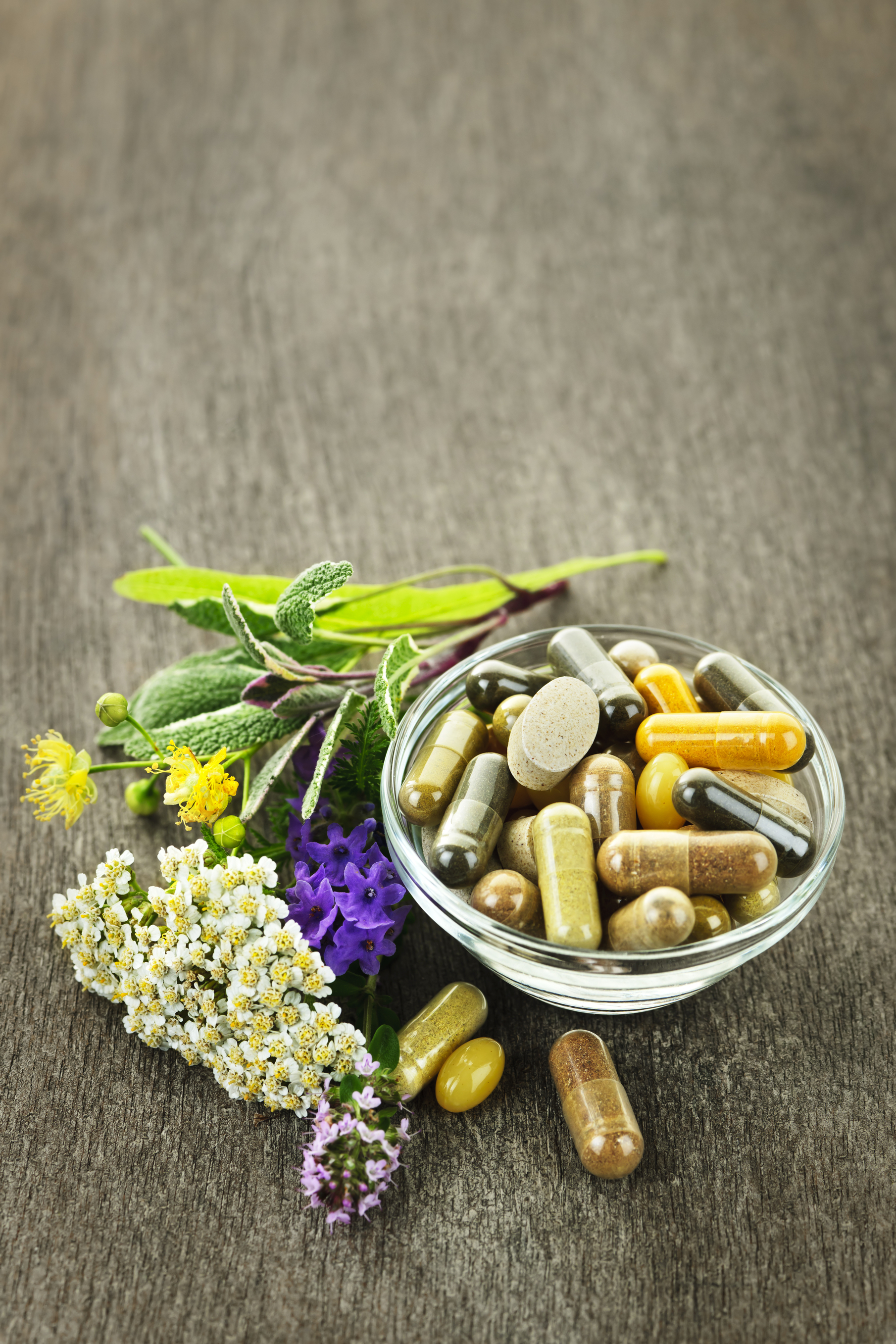5 Herbs and Supplements for Depression
 Antidepressants are so commonly discussed and prescribed that we often lose sight of natural alternatives that can be just as effective for treating depression and anxiety. Many people fear taking antidepressants because of potential side effects they may endure from using them. Other people are completely against prescription drugs and prefer utilizing holistic treatments over medication.
Antidepressants are so commonly discussed and prescribed that we often lose sight of natural alternatives that can be just as effective for treating depression and anxiety. Many people fear taking antidepressants because of potential side effects they may endure from using them. Other people are completely against prescription drugs and prefer utilizing holistic treatments over medication.
The FDA has approved a broad range of medications for the treatment of depression, but more and more people are shying away from the idea of taking a manufactured pill. An attractive alternative is herbal supplements. Many of these supplements have been used medicinally for centuries. Today, these supplements are marketed as mood boosters for those who struggle with chronic feelings of depression and anxiety.
Before we go any further, if you are considering changing your medication or going on herbal supplements, please seek the advice of your doctor. We are solely providing this information as an educational resource.
Here are several herbs that may help lift your mood if you experience mild to moderate depression.
-
St. John’s Wort
St. John’s Wort is a plant that is commonly used to treat depression. Europeans have been taking the herb for quite some time for depression; however, the FDA has not approved the drug to treat the condition.
The herb has been linked to increasing the amount of serotonin. Serotonin is a feel-good chemical in the brain that people with depression lack enough of. St. John Wort may be effective in raising levels of this critical chemical. According to the National Institute of Health (NIH), St. John’s Wort may help with mild forms of depression. It is important to mention that St. John’s Wort may interact with other medications, so it is crucial to talk to your doctor if considering this supplement. -
Omega-3 Fatty Acids
Omega-3 fatty acids are healthy fats found in fish such as salmon, trout, and sardines. They are available as supplements and are often called fish oil capsules. According to the Mayo Clinic, those with low levels of two brain chemicals found in fish oil may have an increased risk of depression. Therefore, it is helpful for them to take omega-3 supplements to increase these brain chemicals. In addition to supplements, it is beneficial to increase your consumption of omega-3 rich foods like fish. However, be mindful of mercury levels in your pursuit.
-
Saffron
We have written in the past about the many benefits of saffron. Saffron is a spice derived from the dried portion of crocus, a flower in the iris family. Taking saffron stigma (the rod-like stem in flower) has been linked to improving and treating mild to moderate depression.
-
SAM-e
The supplement SAM-e is short for S-adenosylmethionine. According to the Mayo Clinic, SAM-e is regarded as a supplement and not a medication, however, in many other countries, Sam-e is prescribed like a medication. SAM-e should not be taken along with antidepressants and be mindful that the drug can cause upset stomach and constipation if taken in large quantities. SAM-e can be taken various ways and works for depression, anxiety, ADHD and even to strengthen joints.
-
5-HTP
5-HTP (5-Hydroxytryptophan) is a chemical by-product of the protein building block L-tryptophan. The chemical is produced from seeds of an African plant known as Griffonia. 5-HTP is used for sleep disorders such as insomnia, depression, anxiety, migraine and tension-type headaches, fibromyalgia, obesity, premenstrual syndrome (PMS), premenstrual dysphoric disorder (PMDD), attention deficit-hyperactivity disorder (ADHD), seizure disorder, and Parkinson’s disease. 5-HTP works by increasing production of serotonin and is used for any condition where serotonin is believed to play an important role.
Honorable Mentions
There are many herbs and supplements marketed as being able to treat depression, however many have not been proven effective. Still, people do use these herbs and supplements with results.
Some of these include:
- Crataegus oxyacantha (hawthorn)
- Eschscholzia californica (California poppy)
- Ginkgo biloba
- Lavandula angustifolia (lavender)
- Matricaria recutita (chamomile)
- Melissa officinalis (lemon balm)
- Passiflora incarnate (maypop, or purple passionflower)
- Piper methysticum (kava)
- Valeriana officinalis (valerian)
If you do choose to use these or other herbs, always check with your doctor first.
Talk to Your Doctor
Lastly, although these herbs and supplements are promising, they are not a replacement for treatment when you struggle with severe depression. Therefore, it important to meet with professionals and doctors to help guide you in the healing process.
Depression can be a serious disease. You should work with your doctor to find a treatment plan that works for you. If you or someone you love is struggling with substance abuse or addiction, please call now. If you or someone you love is struggling with substance abuse, addiction or compulsive behavioral disorders, please call toll-free 1-800-777-9588.
